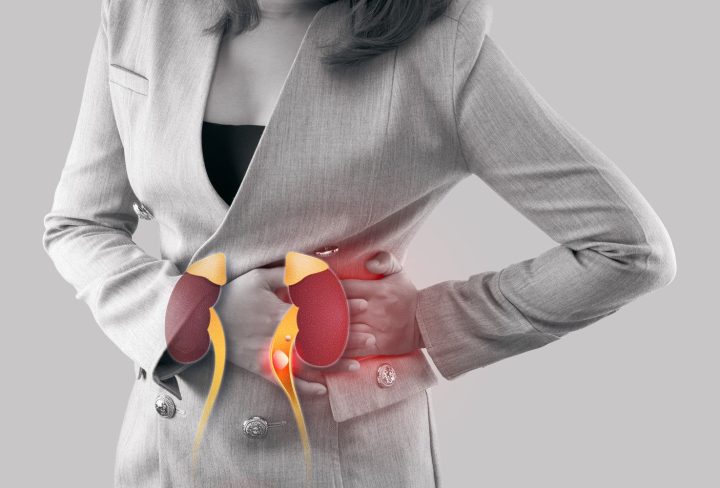Acute Kidney Disease (AKD) is a sudden, potentially life-threatening condition.
It is characterized by rapid decline of kidney function caused by damage to the kidneys.
This can be caused by infection, toxins, medications or direct injury.
Symptoms of Acute Kidney Disease
• Swollen ankles, feet, and hands
• Nausea and vomiting
• Changes in urination (foamy urine, decreased urine output, or increased frequency of urination)
• Fatigue
• Shortness of breath
• Confusion
• Loss of appetite
• Muscle cramps
• Abnormal heart rhythms
Causes of Acute Kidney Disease
• Dehydration
• High blood pressure
• Diabetes
• Infections (Urinary tract infections)
• Certain pain medications
• Excessive use of alcohol or illicit drugs
• Heart failure
• Kidney stones
• Liver disease
• Certain types of cancer
• Severe allergic reactions
Diagnosis of Acute Kidney Disease
Physical examination of the abdomen to check for any signs or symptoms of AKD
Laboratory tests (electrolyte panel, urinalysis, and complete blood count)
Imaging tests (CT scan, MRI, or ultrasound)
Additional tests (kidney biopsy, ultrasound of the bladder, or nuclear medicine scans)
Treatment of Acute Kidney Disease
Medications: Medications may be prescribed to improve kidney function or reduce symptoms of acute kidney disease. These may include diuretics to reduce fluid retention, antibiotics to fight infection, and medications to lower blood pressure.
Dialysis: Dialysis is a procedure that filters waste and excess fluid from the body when the kidneys do not function properly. It is typically used when kidney function has become too weak to treat with medications.
Lifestyle changes: Lifestyle changes may be necessary for those with acute kidney disease. A healthy diet, avoiding alcohol and smoking, and regular exercise can help improve kidney function. It is also important to get adequate rest and reduce stress.
Diet Changes for Acute Kidney Disease
1. Increase fluid intake: Drink plenty of fluids throughout the day to help flush out toxins from the body and reduce the risk of dehydration.
2. Avoid processed and high-sodium foods: Avoid processed, salty, and high-sodium foods, as they can cause further strain on the kidneys.
3. Limit protein intake: Protein can be difficult for the kidneys to process, so limit the amount of protein you consume each day to help reduce strain on the kidneys.
4. Consume low-potassium foods: Certain fruits and vegetables are high in potassium, which can be difficult for the kidneys to process. Try to limit your intake of high-potassium foods.
5. Avoid sugary beverages: Sugary drinks and beverages can put a strain on the kidneys and should be avoided.
6. Consume low-phosphorus foods: Phosphorus is another mineral that can be difficult for the kidneys to process, so try to limit your intake of high-phosphorus foods.
7. Eat more fiber: Fiber can help to flush toxins out of the body and reduce the strain on the kidneys.
8. Drink herbal teas: Herbal teas can help to reduce inflammation and provide essential vitamins and minerals.
9. Consume more antioxidants: Eating plenty of antioxidant-rich foods can help to reduce inflammation in the body and protect the kidneys.
10. Consider taking supplements: Certain supplements, such as omega-3 fatty acids, can help reduce inflammation and protect the kidneys.
Prevention of Acute Kidney Disease
1. Stay hydrated: Drink plenty of water throughout the day to ensure your kidneys are flushed and stay healthy.
2. Eat a healthy diet: Consume a diet low in sodium and high in potassium, calcium, and magnesium to reduce the risk of developing kidney disease.
3. Exercise regularly: Regular physical activity helps to maintain a healthy weight, which can help ward off kidney disease.
4. Monitor your medications: Certain medications can increase your risk of developing kidney disease, so it is important to closely monitor the medications you take.
5. Manage existing health conditions: If you have an existing health condition such as diabetes, high blood pressure, or heart disease, make sure to closely monitor your condition and take any prescribed medications as directed.
6. Get regular check-ups: If you are at risk for kidney disease, make sure to get regular check-ups from your healthcare provider to ensure that your kidneys are functioning properly.

